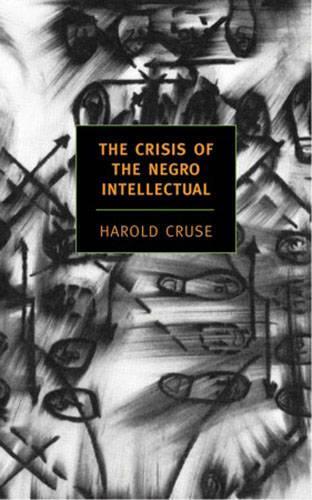
The Crisis Of The Negro Intellectua
(Paperback, Main)
Publishing Details
The Crisis Of The Negro Intellectua
By (Author) Harold Cruse
New York Review Books
NYRB Classics
15th June 2004
15th February 2005
Main
United States
Classifications
General
Non Fiction
Social and cultural history
305.896073
Physical Properties
Paperback
616
Width 134mm, Height 203mm, Spine 30mm
643g
Description
First published in 1967, in the wake of race riots and integration fears, The Crisis of the Negro Intellectual is an indispensable history and urgent critique of the black left from the Harlem Renaissance through the black arts movement. Memorably portraying prominent figures such as Paul Robeson, Lorraine Hansberry, and James Baldwin, Harold Cruse tells of African-American artists yoked to rigid doctrines that doom them to political and artistic failure. He then sweeps out from Harlem cultural institutions to broader issues- mass media and communism, black-Jewish relations, the revolutionary use of force- while searching out an authentic black culture based in political self-consciousness and economic independence.
Reviews
"Harold Cruse wrote The Crisis of the Negro Intellectual for the moment and for the future. He succeeded in both.Cruses book not only reflected the frustration, anger and confusion of its time, it also promised an explanation and a solutionan enduring document."
TLS
"Eloquent, passionate, forcefulHarold Cruse has had an electrifying impact on an entire generation of African American intellectuals."
Gerald Horne
"Crisis dwarfed almost all other books of the period when it came to bringing together politics, art, and social movements related to or inspired by the Afro-American condition."
Stanley Crouch
"Cruse repositioned the interpretive axes of the study and conduct of black political debate. Where Malcolm X was the intellectual inspiration of Black Power and Stokely Carmichael (Kwame Tur) was its principal ideological architect, Cruse was without question its definitive critical interlocutor."
Adolph Reed, Jr., New School University
"When all the manifestoes and polemics of the Sixties are forgotten, this book will survive as a monument of historical analysisa notable contribution to the understanding of the American past, but more than that, a vindication of historical analsis as the best way, maybe the only way, of gaining a clear understanding of social issues."
Christopher Lasch, New York Review of Books
Author Bio
Harold Cruse is Professor emeritus of history and Afro-American studies at the University of Michigan. He is also the author of Rebellion or Revolution as well as a contributor to numerous professional journals. He lives in Michigan.
